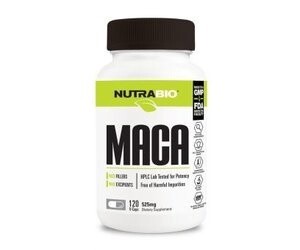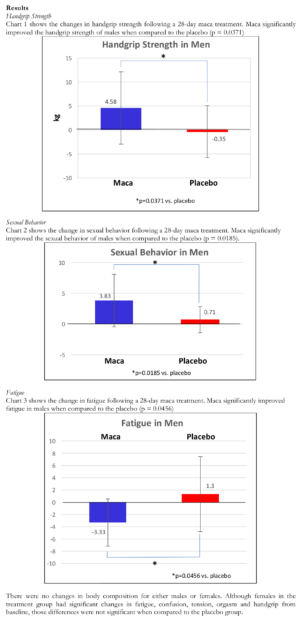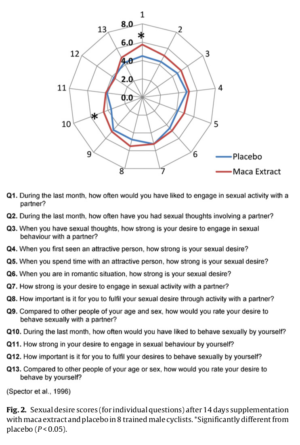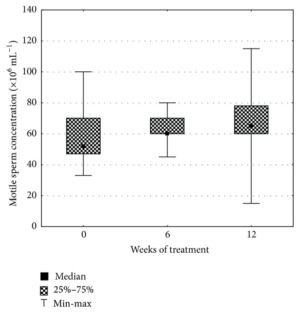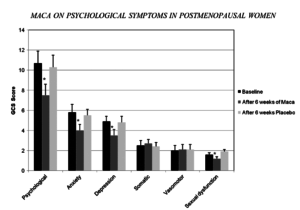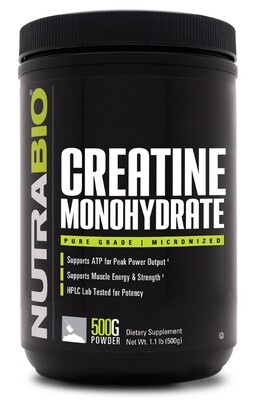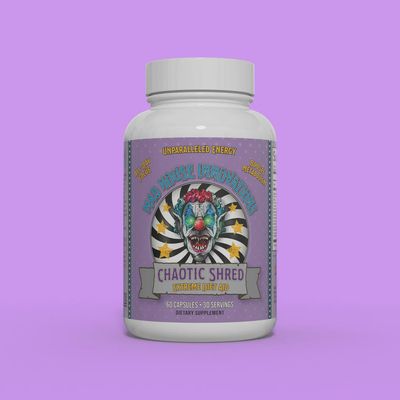Maca 120
NutraBio Maca Ingredients

NutraBio Maca Ingredients feature Lepidamax from Nutrition21, and as always, no added fillers or excipients in the vegetable capsule!
The Supplement Facts Panel for NutraBio’s Maca simply lists 525mg of Lepidamax Gelatinized Maca root powder (Lepidium Peruvianum). As always with NutraBio, there are no fillers or excipients in their capsules, so that’s all you’re getting. There are 120 vegetable capsules per bottle.
As a trusted source of Peruvian Maca, we believe that most (if not all) research applying to Maca should apply to Lepidamax as well — so long as it’s dosed appropriately. But since we’re dealing with just Lepidamax here, we’ll first focus on its research, and then discuss a bit of the other maca research out there:
What are the benefits specific to Lepidamax Maca?
We’ve always known maca to be incredible, but the suppliers simply weren’t. Consider that problem solved: The Maca game has officially been changed by Nutrition 21’s Lepidamax
As a research-centric company, Nutrition21 has sanctioned one study specifically on Lepidamax, and provided the Lepidamax (yet didn’t fund) on another. Since they deal heavily in the sports nutrition industry (with ingredients like the Nitrosigine nitric oxide booster and the Velositol muscle protein synthesis amplifier), their studies involve performance. This is nice given that other general studies discussed lower down often involve fertility, libido, mood, and cognition.
Following the hints of a 2012 animal study that showed maca’s ability to increase endurance capacity,[5] Nutrition21 decided to take things in this direction with their initial foray into maca research:
-
The 2018 Lepidamax Endurance study
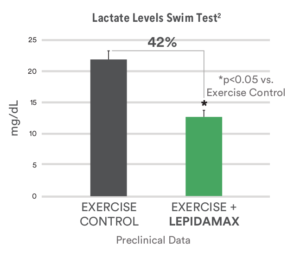
Paired with the increased endurance, this pre-clinical study shows that there could be something serious to Lepidamax
Nutrition21’s research shows that Lepidamax may increase endurance capacity and decrease lactate levels in exercised rats.[6] This isn’t surprising given the data cited above,[5] but it’s great to see that it works on this specific extract as well.
Theorizing how it works: Improved mitochondrial efficiency?
When investigating the mechanism, it seems that Lepidamax increases the mitochondria’s ability to function efficiently. Mitochondrial health has been a major focus of the diet, nutrition, and supplementation industry, as the mitochondria are the “cell powerhouses” across your body. Chances are, if your mitochondria are running well, you’re running well – and the inverse is true as well.
Any improvement to mitochondrial health is something worth investigating, whether you’re looking at athletic performance, longevity, sexual function, or general health.
What’s nice is that the study was conducted on endurance-trained animals, so there are no concerns of “beginner gains”, which can apply to animals just like it does to rookies in the weight room! (Additional charts are shown on our Lepidamax article)
-
The 2019 Study on Fatigue, Handgrip Strength, and Sexual Performance
A second study published in 2017 recorded 47 college-aged subjects for 28 days, and gave the maca group 2.1g of Lepidamax.[7]
In this study, it was the men who reaped the benefits — they had statistically significant improvements in handgrip strength, a reduction in fatigue, and self-reported improved sexual function.[7] Women, however, had improvements but they failed to reach statistical significance.
Given the college age of the participants and data (discussed below) from older women, we postulate that maca may have better effects for older females, as shown in two other studies cited below.
We look forward to Nutrition21 publishing more research on Lepidamax. Until then, we can look at some of the earlier research on general maca extracts:
Maca’s research-backed benefits in humans
The following research was mostly performed on humans, but with other maca extracts. It should apply to NutraBio Maca, but note that it wasn’t on Lepidamax.
-
Maca increases libido
Most of us know that humans generally lose some (or much) of their sex drive as they age. Some struggle more than others with this, and it’s likely a function of diet, training, and social/environmental circumstances. However, maca has shown incredible potential in boosting libido in men,[7,8] and we can personally attest to the benefits of these studies applying to Lepidamax as well!
Boosts libido and reduces symptoms of menopause in women
Women should cheer up too — maca seems to be effective in both genders: a 2008 study demonstrated that maca yielded increases in sexual drive in postmenopausal women.[9] Interestingly, it’s also been shown that maca is effective for the relief of menopausal symptoms in women![10]
A bit of animal research for support acute supplementation
Despite centuries of use, much of this “official” research started in 2001, where male mice were given either 15mg/kg or 75mg/kg for 15 days. Both dosages yielded higher levels of sexual drive compared to placebo,[13] and its effects began showing up on the first day of the study and lasted until the final day!
This is exciting because it shows that maca may boost libido both acutely and chronically, which will excite those who are looking for both fast results and long-lasting results — if they transfer to humans. Anecdotally, however, it seems to take about a week to really start feeling the libido effects of maca.
-
Maca and male fertility
In line with the studies above, maca extends beyond libido. It’s been demonstrated to increase sperm concentration and motility in double-blinded, placebo-controlled research.[11] This has been shown to work in both fertile and infertile men, where additional research showed it has the ability to improve sperm quality.[12]
To summarize the libido and fertility research, those looking for “fertility gains” may want to at least give maca a serious shot before taking more drastic measures.
-
Mood enhancement: reduction of anxiety in women
Libido isn’t the only thing that feels better with maca! It may in fact affect your overall mood!
Research on women demonstrated that a high dose of maca (3.5g/day) decreased symptoms of anxiety and depression, but did so without relation to androgen or estrogen levels.[9] This is important to note because it showed that it helped mentally but didn’t require hormone modulation to do so.
It’s unclear why maca helps relieve anxiety in women (especially when men seem to get a bit more “riled up” with it), but this is something that’s frequently sought after. Women looking for this effect may also enjoy NutraBio’s KSM-66 Ashwagandha and NutraBio’s 5-HTP.
-
More cognitive benefits – improved memory?
Oddly enough, the traditional use of maca has historically been for memory improvement and better learning capabilities, specifically in schoolchildren.[2] In 2011, researchers tested black maca on memory-impaired mice[14] (there are 12 maca phenotypes, but the main three are black, red, and yellow[2]). The results showed that it does enhance learning in memory in these animal models.
It will be interesting to see if any cognitive benefits are shown in human adults.
